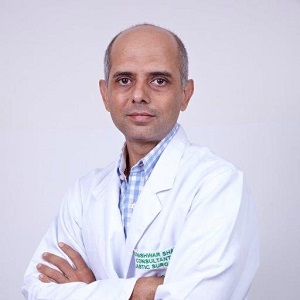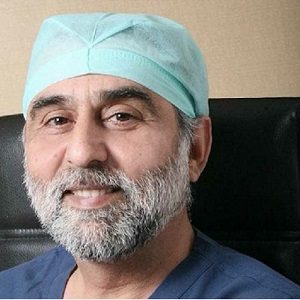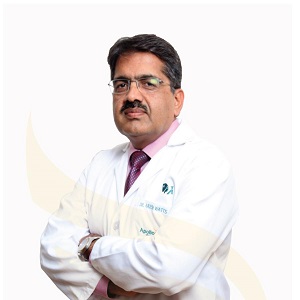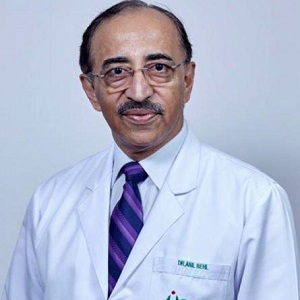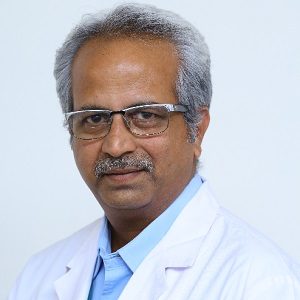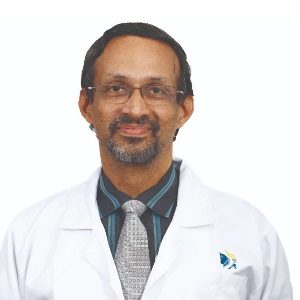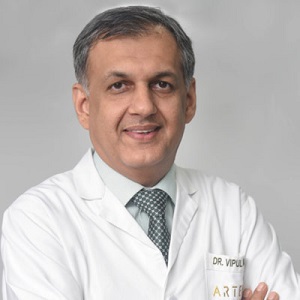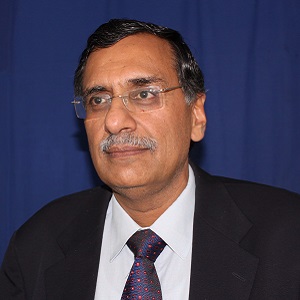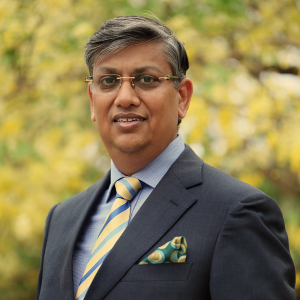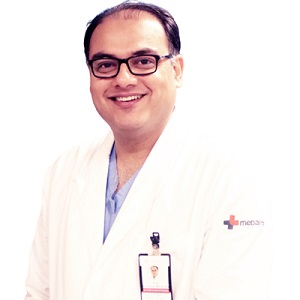Best Doctors in India for Laser Resurfacing
- Plastic & Cosmetic Surgeon, Gurugram, India
- Over 20 years’ experience
Profile Highlights:
- Dr. Adhishwar Sharma is a reputed plastic surgeon, with an extensive experience in plastic and reconstructive surgery.
- He has been associated with various hospitals like Fortis hospital Noida, Batra Hospital, Metro hospital Faridabad, and Central hospital Faridabad.
- He has an interest in Brachial Plexus reconstruction and lymphedema. He has published articles in various international and national journals. He is a member of various professional bodies.
- Cosmetic & Plastic Surgeon, New Delhi, India
- Over 30 years experience
Profile Highlights:
- Dr. Shahin Nooreyezdan is a well-known plastic surgeon in India with over 30 years of experience. He works as a senior plastic surgeon at the Indraprastha Apollo Hospital in New Delhi.
- Dr. Nooreyezdan extensively works on post-cancer reconstruction, burns & microvascular surgery, and re-attaching amputated limbs to improve the aesthetic appeal as well as deformities correction.
- Dr. Nooreyezdan is also attached to various social responsibility events like “Project Hope,” where he helped in recovering and rehabilitating 33 Christian orphans from the Tsunami-affected Nicobar Islands. Dr. Shahin has been the financial support for providing English and Moral Education to deprived children.
- Plastic & Cosmetic Surgeon, New Delhi, India
- Over 20 years’ experience
Profile Highlights:
- Currently associated with Indraprastha Apollo Hospitals, Dr. Rajesh Watts is a renowned plastic surgeon in Delhi with around 20 years of experience.
- He had completed his MBBS in the year 1990 from Guru Nanak Dev University, and did his MS in General Surgery in the year 1996, from University of Rajasthan. He got his MCh in Plastic Surgery in the year 2003, from Banaras Hindu University.
- Some of the services provided by Dr. Rajesh Watts include instant brow lift treatment, hair loss treatment, hair replacement, hair transplant, etc.
- Plastic & Cosmetic Surgeon, Gurugram, India
- Over 38 years’ experience
Profile Highlights:
- Dr. Anil Behl is an accomplished and skilled plastic surgeon with over 38 years of experience. He has excelled in the field of Burns care, complex reconstructive and aesthetic surgeries.
- He obtained special training in hand surgery in the UK (1993-1994) in Craniofacial Surgery at Providence Hospital USA in 1994-95 and in Aesthetic Surgery in the USA (2000-2001).
- Plastic Surgeon and Cosmetic Surgeon, Chennai, India
- Over 27 years’ experience
Profile Highlights:
- Dr. Chepauk Ramesh is one of the best and most experienced Aesthetics and Plastic Surgeons in India, having about two decades of experience.
- Dr. Ramesh completed a fellowship in Microvascular Surgery at the Nizam’s Institute of Medical Sciences in Hyderabad and Tata Memorial Hospital in Mumbai.
- He gives the best of his assistance to the patients in trauma management, Microvascular Reconstruction, Correction of Congenital Anomalies, Trauma Management, Hand Surgery, Burns Reconstruction, and General and Cosmetic Surgery.
- Plastic Surgeon and Cosmetic Surgeon, Chennai, India
- Over 36 years’ experience
Profile Highlights:
- Dr. Ganapathy Krishnan is a leading Cosmetic or Plastic Surgeon in Chennai and one of India’s most sought-after consultants.
- Dr. Krishnan has been helping patients with the know-how of Reconstructive management for 36 years in this field.
- He received Microsurgery training in Taiwan and practiced for 18 years.
- Plastic & Cosmetic Surgeon, Gurugram, India
- Over 20 years’ experience
Profile Highlights:
- Dr. Vipul Nanda is known as one of the most reputed plastic surgeons in India and has over 20 years of experience. Dr. Nanda did his MS from AIIMS and MRCS in UK. Following MCh from PGI in 1997 he underwent advanced fellowships under world leaders in cosmetic and plastic surgery in Spain, Japan, U.K. & USA.
- Throughout his career, Dr. Vipul Nanda has presented and published his technique of cleft palate repair and rhinoplasty for cleft patients at various national and international fora which have been acclaimed by his peers.
- Plastic & Cosmetic Surgeon, Gurugram, India
- Over 25 years’ experience
Profile Highlights:
- Dr. Rakesh Kumar Khazanchi is the Chairman of Plastic, Aesthetic, and Reconstructive Surgery at Medanta.
- With over 25 years of surgical experience, Dr. Rakesh Khazanchi specializes in cosmetic surgery, reconstructive microsurgery, vascular malformations, replantation of amputated parts as well as head and neck reconstruction.
- Dr. Khazanchi has undertaken 22 research projects, has published over 60 papers in national and international journals, and has also contributed over four chapters in textbooks as well as edited and authored a book of Plastic Surgery for General Surgeons.
- Plastic & Cosmetic Surgeon, New Delhi, India
- Over 28 years’ experience
Profile Highlights:
- Dr. Sunil Choudhary is the Principal Director & Chief of Plastic Surgery at Max Super Speciality Hospital, New Delhi.
- He has over 28 years of proficient experience in the medical field and has been honored for being the first-ever Indian Plastic Surgeon to be awarded Board Certification by the European Board of Plastic, Reconstructive & Aesthetic Surgery in Bern, Switzerland.
- Dr. Choudhary’s outstanding performance, especially in the field of Aesthetic Surgeries such as face reconstruction and breast augmentation, rhinoplasty, and microsurgery has earned him several awards and accolades.
- Plastic and Reconstructive Surgeon, Gurugram, India
- Over 25 years’ experience
Profile Highlights:
- With over 25 years of experience, Dr. Sanjay Mahendru is a fully qualified aesthetic plastic and reconstructive surgeon.
- He went to receive advanced training in Cosmetic Surgery at the Melbourne Institute of Plastic Surgery, Melbourne, Australia.
- He was also awarded the Advanced Aesthetic Plastic Surgery Fellowship in 2008. The fellowship is recognized by the International Society of Aesthetic Plastic Surgery (ISAPS) and is highly sought after the world over.
Best Hospitals in India for Laser Resurfacing
Indraprastha Apollo Hospital, New Delhi
- City: New Delhi, India
Hospital Highlights:
- Indraprastha Apollo Hospital is a 700-bedded multispecialty hospital in the heart of the capital of India. It is a part of Apollo Hospital group, one of India’s most reputed healthcare chains. Indraprastha Apollo Hospital has been accredited by Joint Commission International, making it the first internationally accredited hospital in the country in 2005.
- There are 52 specialties in the hospital with one of the best cardiology centers in the country. The hospital is also equipped with State of the art infrastructure facilities with the largest Sleep Lab in Asia and the largest number of ICU bed facilities in India.
- The hospital also has one of the largest dialysis units in India along with a dedicated Bone Marrow Transplant unit.
- The latest and highly advanced technologies that are installed in the hospital include Da Vinci Robotic Surgery System, PET-MR, PET-CT, Cobalt-based HDR Brachytherapy, Brain Lab Navigation System, Tilting MRI, Portable CT scanner, 3 Tesla MRI, 128 Slice CT scanner, DSA Lab, Endosonography, Hyperbaric Chamber and Fibro scan.
Fortis Memorial Research Institute, Gurugram
- City: Gurugram, India
Hospital Highlights:
- Fortis Memorial Research Institute is a multi-super-specialty, quaternary care hospital with 1000 beds. The hospital comprises reputed clinicians, and international faculty and is also equipped with cutting-edge technology. The hospital is a part of Fortis Healthcare Limited, a reputed chain of private hospitals in India.
- It is a NABH-accredited hospital that is spread across 11 acres of land and has a capacity of 1000 beds. The hospital has 55 specialties and is one of the premier health care centers in the Asia Pacific region popularly known as “the Mecca of Healthcare”.
- The hospital has 260 diagnostic centers and is also equipped with the latest and advanced techniques that include 3 Telsa which is the world’s first Digital MRI technology. The hospital also has world-class Radiation Therapy techniques which have been developed by leading technology experts from Elekta and Brain Lab.
Apollo Hospital, Chennai
- City: Chennai, India
Hospital Highlights:
- Apollo Hospitals, Chennai, is one of the best hospitals for heart care in India. Over the years, Apollo has expanded all over India, as a healthcare chain.
- India’s first ‘Only Pancreas’ transplant was performed in Apollo Hospital. The hospital is known for successfully performing Asia’s first en-bloc combined heart and liver transplant, and over the years, it has attained a remarkable achievement in the global healthcare space. Around 3-4 organ transplants are performed in the hospital per day.
- Equipped with over 500 beds, this hospital in Chennai was established in 1983 and since then has been among the most preferred hospital for patients from all over the world.
- The hospital holds accreditation of the NABH and JCI and is the first hospital in India to be ISO 9001 and ISO 14001 certified. It is also the first South Indian Hospital to receive subsequent reaccreditation from the JCI USA 4 times.
Medanta-The Medicity, Gurgaon
- City: Gurugram, India
Hospital Highlights:
- One of India’s best and largest multi-specialty hospitals, Medanta was built with the aim to bring India to the highest standards of medical care. The hospital has been providing the best medical services to its patients, since its inception, with care, commitment, and compassion.
- Equipped with 1250 beds, the hospital was founded by Dr. Naresh Trehan in the year 2009 with an aim to provide the best medical care at affordable costs. The hospital is spread across 43 acres and includes 45 operation theatres and 350 beds dedicated solely to ICU. The hospital includes over 800 doctors, and more than 22 specialty departments and has a dedicated floor for individual specialty in order to offer the best services under one roof.
- The hospital is considered one of the premier institutes in India for Cardiac Care and includes staffs and members of high caliber. The hospital has 6 distinct centers of excellence.
Max Super Specialty Hospital, New Delhi
- City: New Delhi, India
Hospital Highlights:
- One of the well-regarded providers in India committed to the highest standards of clinical excellence and patient care, Max Super Specialty Hospital is a part of Max Healthcare, which is the second-largest healthcare chain in India. Regarded as one of the most well-regarded healthcare providers in the country, Max Super Specialty Hospital is committed to the highest standards of clinical excellence as well as patient care. The hospital is also equipped with the latest technology as well as cutting-edge research. The hospital is known to deliver and ensure the highest level of patient care.
- The hospital has more than 500 beds and offers treatment for over 35 specialties. The hospital also holds the credit of having installed the first Brain Suite in Asia. This is a highly advanced Neurosurgical machine that allows MRI to be taken while surgery is ongoing.
- Other advanced and latest technologies are also installed in the hospital such as the 1.5 Tesla MRI machine, 64 Slice CT Angiography, 4D ECHO, LINAC, and 3.5T MRI machine.
Artemis Hospital, Gurugram
- City: Gurugram, India
Hospital Highlights:
- One of the most well-known hospitals in the Delhi NCR, Artemis Hospital is the first hospital in Gurugram to get accredited by the Joint Commission International.
- With more than 40 specialties, the hospital has been designed to be one of the most technically advanced hospitals in the country, with the best medical and surgical health care. The hospital has eleven special and dedicated centers, for Heart, Cancer, Neurosciences, etc.
- The latest technologies in the hospital include Endovascular Hybrid Operating Suite and Flat panel Cath Labs for the cardiovascular department, 3 Tesla MRI, 16 slice PET CT, 64 Slice Cardiac CT Scan, HDR Brachytherapy, and highly advanced Image Guided Radiation Therapy techniques (LINAC) are installed in the hospital.
- The hospital has won several awards as well, since its inception.
BLK Max Super Specialty Hospital, New Delhi
- City: New Delhi, India
Hospital Highlights:
- Equipped with 650 beds, BLK Superspecialty Hospital is the largest stand-alone private sector hospital in Delhi.
- With over 1500 healthcare providers and 150 globally renowned super specialists, the hospital is one of Asia’s largest Bone Marrow Transplant Centres. The hospital is known for having some of the best cancer doctors in the country.
- The hospital is NABH and NABL accredited and was inaugurated by the first Prime Minister of India. Pt. Jawahar Lal Nehru.
Gleneagles Global Hospitals, Chennai
- City: Chennai, India
Hospital Highlights:
- Established in 1999, Gleneagles Global Hospital, Chennai, is one of the top healthcare facilities in Southern India. It is part of the Gleneagles Hospital Chain, which is the fourth largest healthcare chain in the country. The hospital specializes in multi-organ transplants of kidneys, liver, lungs, heart, etc.
- The hospital has an excellent infrastructure and state-of-the-art lab and equipment set-up. The hospital boasts cutting-edge technologies, a highly skilled team of doctors and surgeons, and trained support staff. Located in Perumbakam, Chennai, it is one of India’s premier health care destinations. The hospital has performed some of the most complex surgical and clinical procedures in India including multi-organ transplantations.
- The hospital’s lung transplantation program is one of the best in the country. The hospital is known for having performed India’s first single lung transplant and first minimal invasive lung transplant. It is also the only Indian hospital to be associated with King’s College Hospital, London, United Kingdom for liver transplantations.
Fortis Hospital, Mulund, Mumbai
- City: Mumbai, India
Hospital Highlights:
- Fortis Hospital in Mulund is a 315-bed multi-speciality tertiary care hospital with five JCI accreditations that offers a wide variety of diagnostic and therapeutic services. The Fortis Hospital in Mulund delivers patient-centred treatment with cutting-edge technology, highly skilled and experienced surgeons, and paramedical staff.
- This institution houses Maharashtra’s largest multi-organ transplant centre. It is also the first heart transplant centre in western India to conduct 100 or more consecutive heart transplants in under four years. It is the only hospital in the city to have multi-organ transplants and has handled the youngest patient for angioplasty. Fortis Hospital Mulund now boasts the first advanced surgical robot in central Mumbai.
- Cardiology and heart surgery, urology, nephrology, neurosciences, orthopaedics, digestive care, emergency and critical care, and maternity care are among the services provided by the hospital.
Kokilaben Dhirubhai Ambani Hospital, Mumbai
- City: Mumbai, India
Hospital Highlights:
- Kokilaben Dhirubhai Ambani Hospital, Named after the wife of Indian industrialist Dhirubhai Ambani, the founder of Reliance Industries, this is one of the top hospitals in Mumbai. This 750-bed multi-specialty hospital became operational in 2009. Known as one of India’s most advanced tertiary care facilities, the hospital is designed to raise India’s global standing as a healthcare hub, with an emphasis on excellence in clinical services.
- Kokilaben Dhirubhai Ambani Hospital uses Protocol and Care Pathway based treatment models to ensure the best outcomes for patients.
- The hospital represents a confluence of top-notch talent, cutting-edge technology, state-of-the-art infrastructure, and, most importantly commitment.
- The hospital also holds the accreditation of the NABH, NABL, CAP, and JCI.
- The hospital has been recognized as the No. 1 Multispecialty Hospital in Mumbai and the West Zone for the fifth year in a row in 2020 by The Week.
Laser Resurfacing
Laser resurfacing is a treatment for reducing facial wrinkles as well as skin irregularities such as blemishes or acne scars.
This technique can help to decrease the appearance of fine lines on your face. It is able to treat loss of skin tone as well as improve complexion if you are having scars or sun damage. This procedure is also termed as lasabrasion, laser peel or laser vaporization.
Purpose
Laser resurfacing can be used for treating:
- Fine wrinkles
- Age spots
- Mild to moderate acne scars
- Uneven skin tone or texture
- Sun-damaged skin
If you have acne or if your skin is too dark, then you might not be a candidate for this procedure. This technique is also not recommended for stretch marks. You can discuss with your doctor whether this procedure is right for you with your doctor before you choose to undergo it.
Preparation
Before you undergo laser resurfacing, your doctor will ask about your medical history. You will need to answer questions about any current and past medical conditions as well as any medications that you take or have taken recently. You will also need to inform about any cosmetic procedures that you have had in the past.
Your doctor will next inspect your skin and the area where the treatment will be performed. This will help your doctor determine what changes can be made and how your physical features, might affect the results.
It is important to discuss with your doctor about your expectations and potential risks. Make sure you understand how long it will require for you to heal and what your results might be.
Before the procedure, you might need to take a few medications to prevent complications. You will also need to avoid unprotected exposure to the sun. If you smoke, you will need to stop smoking at least two weeks after the treatment. You will also need to arrange for someone to take you home.
Procedure
Laser resurfacing is generally done by a plastic surgeon or a dermatologist. It is performed as an outpatient procedure, which means you will not need to stay overnight after the procedure.
Your doctor might choose to treat your entire face or the wrinkles around your eyes, forehead or mouth individually. For small areas, a local anesthetic will be used for numbing the area.
If the method is used for the procedure is ablative laser resurfacing, then an intense beam of light energy is directed at your skin. This beam destroys the outer layer of the skin. At the same time, the laser heals the underlying skin, which is known to stimulate collagen production over time, which results in better skin tone and texture. Ablative laser resurfacing can generally take between 30 minutes and two hours.
If you undergo nonablative laser treatment, it will consist of a series of treatments that will be scheduled over the course of a few weeks or months.
After the procedure
After the procedure, the treated skin will be raw, swollen and itchy. Your doctor will be applying a thick ointment to the treated skin and may also need to cover the area with an airtight and watertight dressing. You might also require a pain reliever and use cool compresses.
In around a week or two, new skin will cover the area. During this time, avoid using any products such as sunscreens or cosmetics that can cause irritation in your face. Also avoid activities like swimming that can increase your risks of infections.
After laser resurfacing for around one year, it is recommended to avoid too much exposure to the sun. Also, keep in mind that your results might not be permanent. As you continue to age, you will continue to get lines by smiling or squinting.
Risks
Ablative laser resurfacing can lead to various side effects, some of them including:
Redness, swelling and itching- The skin which is treated may become itchy, swollen and red. Redness can be intense and might even last for several months. The aggravation of an existing skin condition such as rosacea, can sometimes contribute to redness.
Infection- In a few cases, ablative laser resurfacing can lead to bacterial, fungal or viral infections. The most common infection is a flare-up of the herpes virus.
Acne- If you apply thick creams and bandages to your face after treatment, it can sometimes worsen acne or even cause you to temporarily develop tiny white bumps termed as milia, on the treated skin.
Scarring- Ablative laser resurfacing also poses a slight risk of permanent scarring.
Turning of the eyelid- Although this is rare, ablative laser resurfacing done near the lower eyelid can cause the eyelid to turn out and expose the inner surface.
Changes in skin color- Ablative laser resurfacing may even cause your treated skin to become darker than it was before the treatment or in some cases, lighter. This happens usually a few weeks after laser resurfacing. Permanent changes in skin color are generally more common among people having darker skin.
Nonablative laser resurfacing also sometimes lead to side effects, such as:
- Infection- Nonablative laser resurfacing can also cause a flare-up of the herpes virus.
- Mild swelling and redness- You might also experience swelling and redness typically last only hours or days.
- Changes in skin color- Nonablative laser resurfacing can cause your treated skin to become darker than it was before treatment, though this should be temporary
It is also noteworthy that laser resurfacing is not for everyone. You might not be a candidate for this procedure if you:
- Are suffering from an autoimmune disease or a weak immune system
- Have a tendency to form scars
- Are prone to cold sores
- Have had a recent outbreak of cold sores or the herpes virus
- Have a darker skin tone
- Have had radiation therapy to the face
- Are pregnant or breastfeeding

